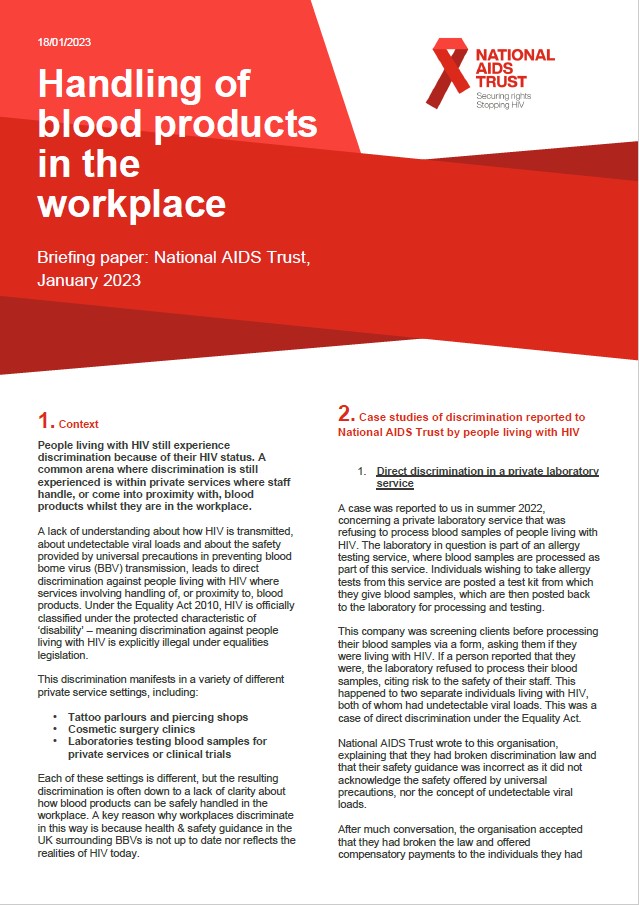Guidance on how to handle blood products in the workplace needs updating
 The current guidance on handling blood products in the workplace needs to be updated to prevent discrimination against people living with HIV. Our Discrimination Advice and Support Service has received several reports from people living with HIV who have faced discrimination in different private service settings including: tattoo parlours, piercing shops, cosmetic surgery clinics and laboratories testing blood samples for private services and clinical trials.
The current guidance on handling blood products in the workplace needs to be updated to prevent discrimination against people living with HIV. Our Discrimination Advice and Support Service has received several reports from people living with HIV who have faced discrimination in different private service settings including: tattoo parlours, piercing shops, cosmetic surgery clinics and laboratories testing blood samples for private services and clinical trials.
Each setting is different, but the resulting discrimination is often down to a lack of clarity about how blood products can be safely handled in the workplace. We can make workplaces that handle blood products safer for employees, and customers, while taking a positive step towards removing many avenues for stigma and discrimination still experienced by people living with HIV in the UK today.
NAT has produced a policy briefing paper analysis of what changes need to happen to stop this discrimination. Current guidance needs to consider the concept of ‘Undetectable = Untransmittable’ or ‘U=U’; this means that a person living with HIV under effective treatment, has a very low viral load that can’t be detected, and is therefore almost completely unable to transmit the virus through bodily fluids.
The evidence for U=U is extensive and absolute. This, therefore, needs to be reflected in Government guidance on blood-borne viruses (BBVs), alongside guidance on universal precautions, to reassure people working with blood products that there is zero HIV transmission risk. The reason that discrimination still presents in these settings is quite often due to ignorance about the likelihood of transmission from individuals living with HIV.
You can read our briefing paper in full here.
If you have faced any kind of discrimination because of your HIV status, we provide advice and support free of charge, with the support of The National Lottery Community Fund. You can contact the service here or by emailing us.

